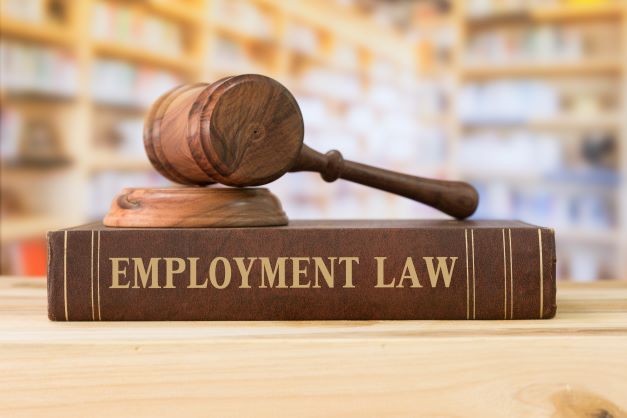How to Choose an Employment Lawyer
No matter how great you think your workplace is, chances are you will either experience or witness problems within. It can be very difficult to decide what to do in this situation, especially if you are afraid of facing retaliation.
It is very important for clients who have faced mistreatment in the workplace to find the right employment lawyer for their legal needs. Filing a lawsuit against a current or former employer can be a difficult decision but an attorney who specializes in employment law can provide clarity, guidance and expertly represent the facts in the case, all in the pursuit of justice.
Instances such as workplace discrimination, wrongful termination, lack of overtime pay and issues of safety are all grounds for filing a claim in court. Here are a few suggestions on choosing the right lawyer.

Workplace Discrimination
What exactly is workplace discrimination? Employment discrimination is defined when an employer treats an employee or applicant less favorably simply because of their race, color, religion, sex, sexual orientation, gender identity, national origin, disability, or status as a protected veteran. The most common form of workplace discrimination has to do with race and color. Some examples of workplace discrimination include inappropriate questions during a job interview, unequal pay, offensive comments or jokes, unfair promotions, and much more. As an employee, you have the right to work in an environment free from discrimination. Legally, you cannot be denied employment, demoted, harassed, terminated, paid less, or treated less favorably because of intrinsic characteristics that you cannot change. Even if the discrimination is not intentional, it does not make it any less illegal.
How can you prove workplace discrimination is occurring?
Employees that are wronged have three ways to prove that their employer(s) intended to discriminate against them: circumstantial evidence, direct evidence, and pattern and practice. Circumstantial evidence is a form of evidence that proves discrimination by making inferences, compared to direct evidence which directly proves workplace discrimination. Circumstantial evidence is usually the most common form of evidence used by employees wanting to prove the discrimination they experienced. To prove discrimination, employees are encouraged to use the McDonnell Douglas framework, a method developed to analyze circumstantial evidence in employment discrimination cases. In addition to both circumstantial and direct evidence, there is also pattern and practice, which is used in class action lawsuits to show that an employer has a perpetuating pattern of discriminatory practices.
Choosing the Right Employment Lawyer
Injustices in the workplace are serious matters and any violation of an employee’s rights provides grounds for a claim against the employer. Therefore, it is vital for clients to conduct research so they can make the most informed decision regarding the lawyer of their choice. Here are 3 areas to consider when choosing the best employment lawyer:
1. Check their educational background and experience
Choosing the right lawyer with the right specialty, background and expertise is essential for a client’s case. Consider the lawyer’s degree and experience with cases similar to the client’s. A lawyer who has experience with similar cases will be able to draw on lessons learned from those prior cases and will have clarity with regards to the best approach to obtaining the best outcome for the client. Also, keep in mind that many lawyers specialize in a number of areas including civil, family, estate planning or corporate law. Prior to hiring the lawyer make sure they actually specialize in employment law specifically.
2. Consider their process and how they practice law
A good lawyer will display professionalism from the first interaction through the end of the case and beyond. This includes how often they communicate with the client regarding the status of the case, how often they reach out to the client and if they discuss any delays or other difficulties of the case. The lawyer’s philosophy and how they approach the law process are also important indicators as to whether or not the lawyer is a good fit. Some clients may seek lawyers who are creative and quick on their feet whereas other clients may want a lawyer who takes a more aggressive approach. Either way, the best employment lawyer will adequately meet the needs of the client.
3. Consider other qualities.
A good lawyer strives for an on-going business relationship. The attributes of the best employment lawyer include professionalism, and expertise. A good lawyer will be confident and will believe in the positive outcomes that can be obtained. A good lawyer is also someone who is passionate about their craft and who is results-oriented every step of the way. A lawyer who is not fully invested in the case will not be able to represent the client or the facts in a well-planned manner. Clients should use their gut feelings when deciding on whether or not the lawyer is taking the case seriously. Furthermore, a good lawyer will display empathy and compassion while working with the client.
The aforementioned considerations, while not an exhaustive list of all that is required to choose the best employment lawyer, are a good starting point for those who need representation in their workplace-related legal concerns. Choosing a lawyer can have huge implications on the client’s life, career and reputation, so choosing only the best employment lawyer, who has the client’s best interest at heart, is of the utmost importance. Click here to see a list of the top employment lawyers in your area.

Free Consultation
Call 973-599-1000 or fill out the form below for a Free Consultation
Not a sales pitch.
